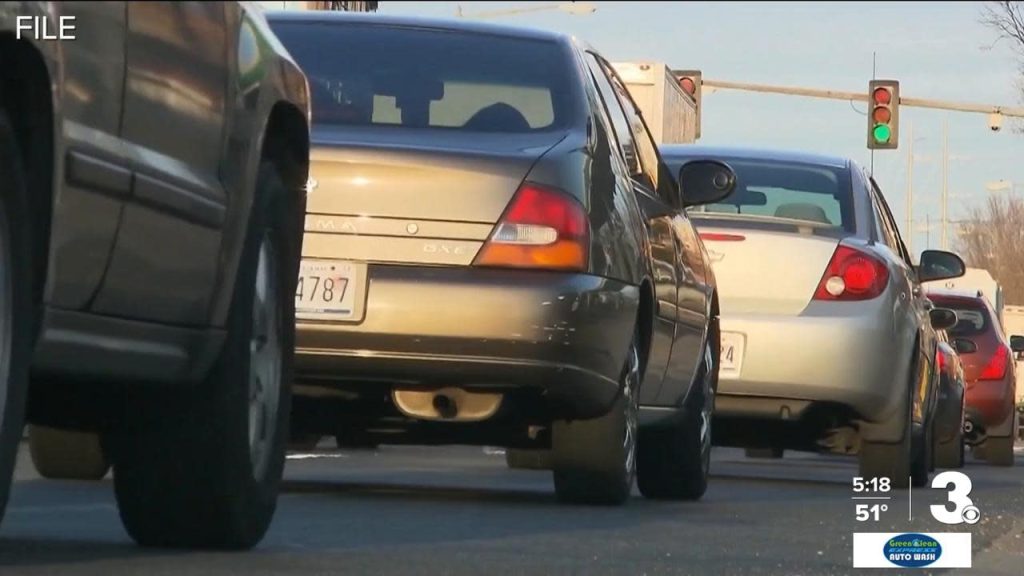Lawmakers in Richmond are back in session, and one of the critical issues on the table is the push for stricter seatbelt laws in Virginia. The current legislation mandates seatbelt use for individuals under 18, but adults can only be ticketed for not wearing one if another violation has occurred. One grieving mother, Christy King, is determined to change this law after the tragic loss of her son, aiming to save lives and prevent future heartbreak.
A Tragedy That Sparked a Movement
Christy King’s life changed forever on July 4, 2020, when her 18-year-old son, Christopher, was killed in a car crash. Christopher, who had just graduated from high school, was sitting in the back seat without a seatbelt when the accident happened.
“Christopher had just graduated high school, full of hope and promise, and two weeks later, he was gone,” King shared.
Determined to prevent other families from experiencing similar pain, King established a foundation in her son’s memory and began advocating for stronger seatbelt laws in Virginia.
The Current Law and Its Shortcomings
Virginia’s existing seatbelt law is outdated and insufficient, according to King. Currently, seatbelt violations are considered secondary offenses for adults. This means law enforcement officers can only issue tickets for not wearing a seatbelt if another traffic violation, like speeding or running a red light, has occurred. Additionally, the law only requires front-seat passengers to wear seatbelts, leaving backseat passengers unprotected.
The fine for not wearing a seatbelt is just $25—a figure that hasn’t been updated since the 1980s.
“They could stop a car now, and if someone in the front seat isn’t buckled, they could issue a ticket,” King explained. “But for the backseat, there’s nothing. And a $25 fine? That’s not enough to emphasize the importance of seatbelt use.”
Proposed Changes to the Law
This week, a bill backed by Delegate Karen Keys-Gamara is set to be reviewed. The proposed legislation seeks to expand seatbelt requirements to include backseat passengers. However, it stops short of making seatbelt violations a primary offense, a step advocates believe is necessary for real change.
“The bill would add backseat passengers to the requirement,” King said. “It’s not perfect—it doesn’t make it a primary offense yet—but even this step could save many lives.”
King remains optimistic but emphasizes that more needs to be done. She hopes the laws will eventually align with those of neighboring states like North Carolina, where stricter seatbelt regulations have led to significantly higher compliance rates.
Virginia Lags Behind Neighboring States
Virginia currently has the lowest seatbelt compliance rate in the United States, with only 73 percent of drivers and passengers regularly wearing seatbelts. This figure is far behind neighboring states:
- North Carolina: Seatbelt usage is at 93 percent, following the implementation of primary enforcement laws.
- Maryland: Compliance stands at 90 percent.
- Kentucky: After updating its laws in 2006, seatbelt usage increased from 67 percent to 89 percent.
“All of our neighboring states have primary seatbelt laws, and their compliance rates are in the 90 percent range,” King pointed out. “Virginia needs to catch up and prioritize safety.”
Why Resistance Exists
One of the main obstacles to stricter seatbelt laws in Virginia is the fear of increased police interactions. Some opponents argue that making seatbelt violations a primary offense could lead to unnecessary stops and exacerbate tensions between communities and law enforcement.
Additionally, there are individuals who resist changes due to outdated beliefs about personal freedom and the inconvenience of wearing seatbelts.
King, however, stresses the importance of prioritizing safety over convenience and addressing misconceptions about seatbelt use.
“It’s not just about protecting yourself,” she said. “It’s about saving other people’s lives. Wearing a seatbelt could mean the difference between life and death—not just for you, but for others in the car.”
The Broader Impact of Change
Research consistently shows that stricter seatbelt laws lead to higher compliance rates and fewer fatalities. For instance, North Carolina saw a significant increase in seatbelt usage after implementing primary enforcement laws. Similarly, Kentucky experienced a dramatic rise in compliance after updating its legislation in 2006.
If Virginia adopts similar measures, it could prevent countless deaths and injuries on the road. King believes that updating the law is a critical step toward improving road safety across the state.
A Hopeful Outlook
Despite the challenges, King remains hopeful that her advocacy will lead to meaningful change. She is determined to honor her son’s memory by saving lives and ensuring that no other family has to endure the pain of losing a loved one in a preventable accident.
“Changing the law won’t bring Christopher back,” she said. “But if it saves even one life, then it’s worth it.”
The proposed bill will be a topic of debate in the coming weeks. Advocates like King are urging lawmakers to take swift action, emphasizing the life-saving potential of stricter seatbelt regulations.
Disclaimer – Our editorial team has thoroughly fact-checked this article to ensure its accuracy and eliminate any potential misinformation. We are dedicated to upholding the highest standards of integrity in our content.





More Stories
Virginia Mom Advocates for Backseat Seatbelt Laws After Son’s Death
Virginia Mom Advocates for Backseat Seatbelt Laws After Son’s Death
Virginia Mom Advocates for Backseat Seatbelt Laws After Son’s Death